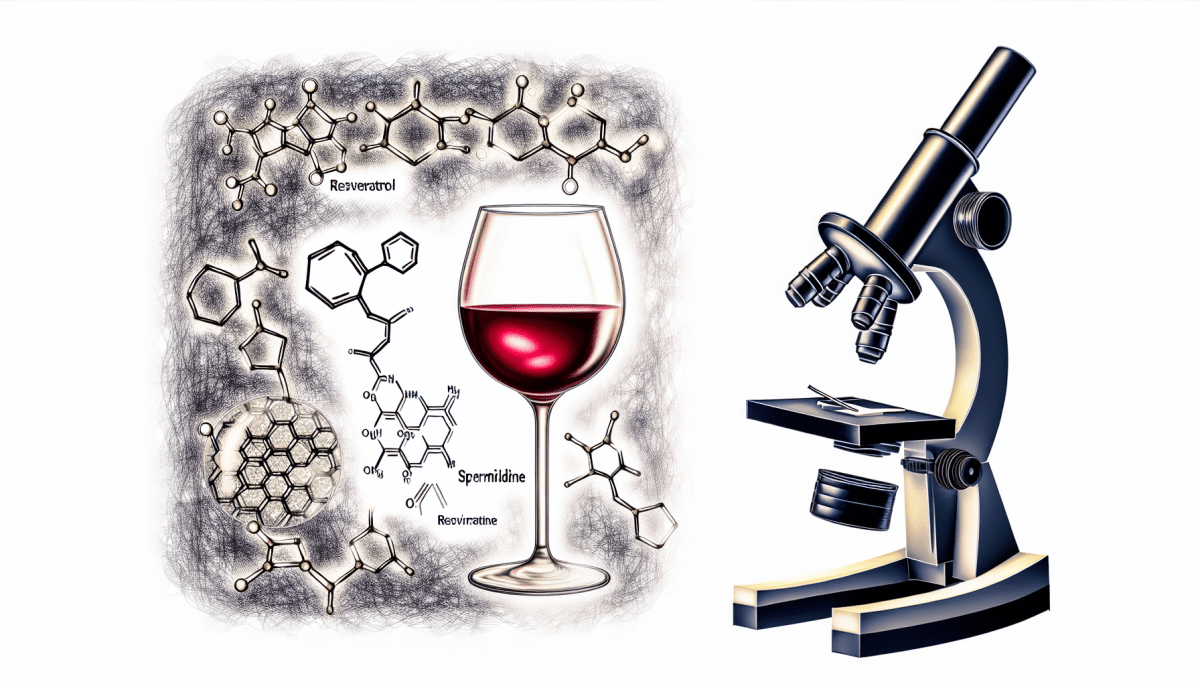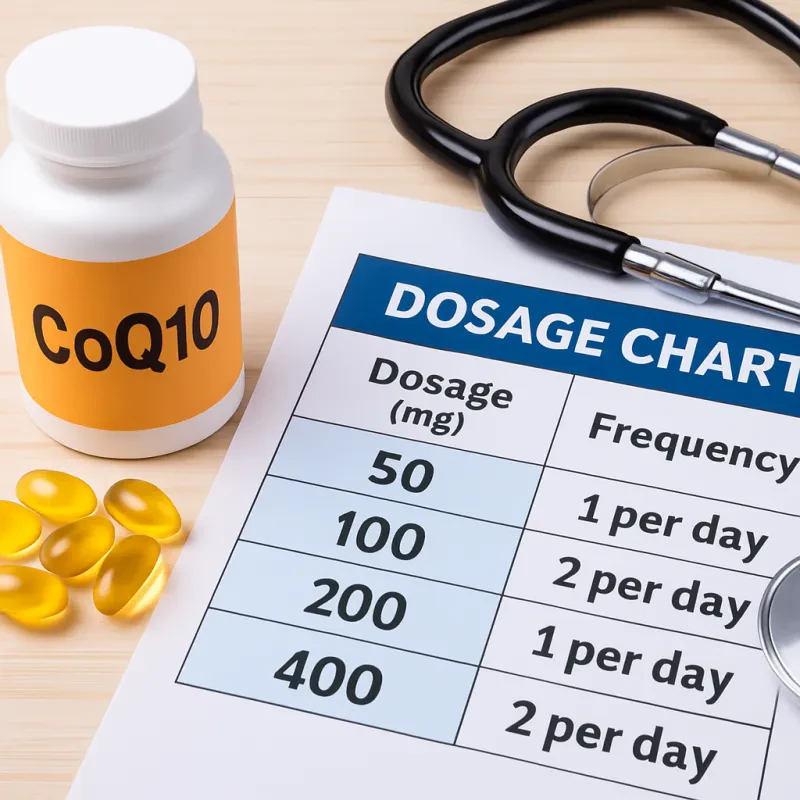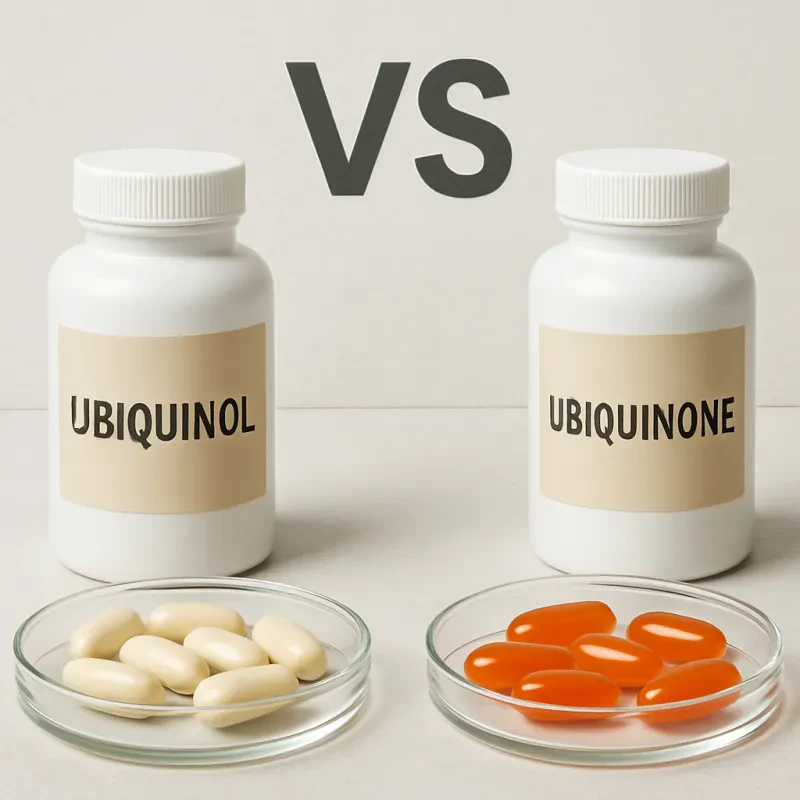Resveratrol and Spermidine are two naturally occurring compounds that have garnered significant interest in the scientific community for their potential health benefits. Resveratrol, a compound found in red wine, is known for its antioxidant and anti-inflammatory properties. It has been studied for its potential to combat diseases such as heart disease and cancer. On the other hand, Spermidine is a polyamine compound found in various foods. It has been linked to cellular growth and repair and has potential implications for longevity and age-related diseases. This paper will delve into the current research surrounding these compounds and their potential benefits and provide a comparative analysis of both.
Resveratrol and Spermidine are significant due to their potential health benefits. The antioxidant and anti-inflammatory properties of resveratrol could help combat diseases such as heart disease and cancer. Similarly, Spermidine's association with cellular growth and repair may affect longevity and age-related diseases. These compounds could be essential in developing treatments for various health conditions. Furthermore, understanding their effects could also contribute to our knowledge of disease processes and the impact of diet and lifestyle on health.
Resveratrol
Resveratrol is a type of natural phenol and a phytoalexin produced by several plants when attacked by pathogens such as bacteria or fungi. It is found in the skin of grapes, blueberries, raspberries, mulberries, and peanuts. Resveratrol is best known as the beneficial compound in red wine, thus making a diet rich in these foods beneficial.
In recent years, numerous studies have been conducted on the potential health benefits of resveratrol. One of the most promising research areas has been its possible role in heart health. Some studies suggest that it reduces inflammation, lowers LDL cholesterol, and has anti-cancer and anti-diabetic properties. However, more research is needed to confirm these findings and understand how best to use resveratrol.
It's important to note that while the properties of resveratrol suggest potential health benefits, the compound is not a substitute for prescribed medications or other doctor-recommended treatments. As always, it's essential to consult with a healthcare professional before starting any new supplement regimen.
Resveratrol's potential health benefits are numerous. It has been linked with anti-ageing effects, possible protection against heart disease and cancer, and beneficial impacts on blood sugar levels, among other things. It is also believed to have neuroprotective properties that could be beneficial in diseases like Alzheimer's and Parkinson's.
On the other hand, Spermidine is linked with cellular growth and repair, which could have implications for longevity and age-related diseases. The compound is believed to induce autophagy, a process where cells degrade and recycle components, a critical mechanism in resisting ageing and the development of diseases. It has also been suggested to promote heart health and reduce cancer risk. However, more research is needed to understand these potential benefits and their implications fully.
Spermidine
Spermidine is a polyamine compound found in ribosomes and living tissues and has various metabolic functions within organisms. It is found in multiple foods, such as soybeans, mushrooms, whole grains, and cheddar cheese. The compound has been associated with cellular growth and repair, which could affect longevity and age-related diseases. It is believed to induce autophagy, a process where cells degrade and recycle components, a critical mechanism in resisting ageing and the development of diseases. Studies have also suggested that spermidine promotes heart health and reduces cancer risk. However, as with many areas of health science, further research is required to understand these potential benefits and their implications fully.
Current Research and Findings
Currently, extensive research is being carried out on both resveratrol and Spermidine. Studies have shown that resveratrol has several beneficial properties, such as antioxidant, anti-inflammatory, cardio-protective, and anti-cancer effects. A recent study pointed out that resveratrol could be used in therapeutics for patients with cardiovascular disease due to its antioxidant and anti-inflammatory effects.
On the other hand, research on Spermidine has indicated that it might have potential health benefits for longevity and age-related diseases. It has been found to induce autophagy, a cellular process crucial for maintaining cellular functions and adaptations during stress. It is essential in fighting against ageing and the development of diseases. Some studies have also suggested that Spermidine can promote heart health and reduce cancer risk.
However, it is essential to note that these compounds are not a substitute for a balanced diet and lifestyle. More research is needed to validate these findings and further understand the mechanisms of action of these compounds further understand these compounds' mechanisms of action.
Resveratrol and Spermidine have demonstrated potential health benefits in various studies, although more research is needed to fully understand their effects and possible uses. Resveratrol has been associated with anti-inflammatory and antioxidant properties, which may help combat diseases like heart disease and cancer. It's also been linked to potential anti-ageing effects and beneficial impacts on blood sugar levels. Similarly, Spermidine has been associated with cellular growth and repair, which could affect longevity and age-related diseases. It may also promote heart health and reduce cancer risk. It's important to note that these compounds are not a substitute for a balanced diet and lifestyle.
Comparative Analysis
Despite their different origins, both resveratrol and Spermidine have been observed to have significant potential health benefits. Resveratrol, primarily found in grapes and berries, is noted for its anti-inflammatory and antioxidant properties. It is suggested to have the potential to combat diseases like heart disease and cancer and may also improve blood sugar levels.
Spermidine, a polyamine compound in various foods, is associated with cellular growth and repair. This association has potential implications for longevity and age-related diseases. It has also been suggested to promote heart health and possibly reduce cancer risk.
Both compounds have been linked to heart health and potentially reduce the risk of cancer, but their mechanisms of action are different. Resveratrol's benefits are due to its antioxidant and anti-inflammatory effects, while Spermidine induces autophagy, a process critical for maintaining cellular functions and adaptations during stress.
However, it is crucial to note that while both compounds show promise, more research is needed to understand their effects and potential uses fully. Moreover, they are not a substitute for a balanced diet and lifestyle.
One of the intriguing aspects of these compounds is their potential combined benefits. The antioxidant and anti-inflammatory properties of resveratrol, combined with the autophagy-inducing effects of Spermidine, could provide a multi-faceted approach to managing health conditions. This could be particularly beneficial in age-related diseases where oxidative stress and impaired cellular processes play a significant role. However, more research is needed to understand the synergistic effects of these compounds when used together.
Future Directions
The future of research in resveratrol and Spermidine looks promising. One avenue of exploration could be the conjoined effects of these compounds, particularly about age-related diseases where oxidative stress and impaired cellular processes play a significant role. Further studies are also needed to determine these compounds' optimal dosage and delivery methods for therapeutic use. Research could also explore potential side effects and interactions with other medications or compounds. Additionally, studies could investigate how lifestyle factors such as diet and exercise influence the effectiveness of these compounds. Lastly, longitudinal studies could further understand resveratrol and Spermidine's long-term impacts and benefits.
Expected Developments
We anticipate several developments as our understanding of resveratrol and Spermidine grows. There is likely to be an increase in the conduction of clinical trials to verify the health benefits of these compounds, particularly for age-related diseases. New administration methods could also be explored to enhance the bioavailability and effectiveness of these compounds. Furthermore, we may also witness the development of new dietary supplements or medications that combine these compounds, leveraging their potential synergistic effects.



